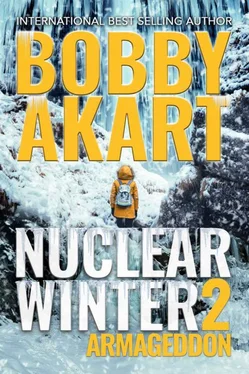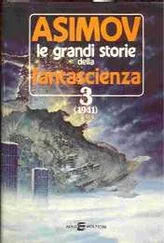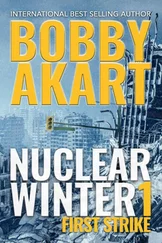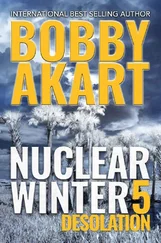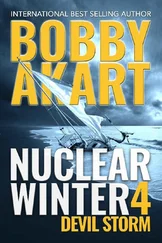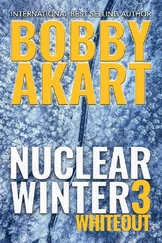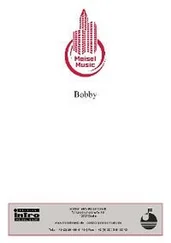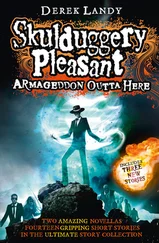Peter slowly approached the body on the floor. His table was stacked with one empty and one half-full bottle of Jim Beam whiskey. Several empty bags of chips were lying on the floor near him. Peter kept his pistol trained on the man’s torso as he kicked his feet to nudge him awake.
“Hey, buddy! Wake up!” he said in a loud whisper.
He nervously glanced around the dining area to see if he’d garnered anyone’s attention. Satisfied nobody else was around, Peter got a closer look at the man, and that was when the stench of his corpse reached his nostrils. He was flat on his back with both hands clutching his chest. The older man might have died of a heart attack, Peter surmised.
He pulled his gaiter over his nose and mouth again as he backed away from the corpse. “What were you doin’ in here, old man?” Peter asked aloud.
He looked around the room to see if anyone else appeared to answer on the dead man’s behalf. When he didn’t get a response, he quickly moved through the entire building to make sure nobody was lying in wait. He was far too exhausted for a shoot-out like the night in the pharmacy.
Satisfied he was alone, he made his way to the front entry doors, unlocked them, and wheeled his bicycle into the clubhouse foyer. After taking a deep breath and exhaling to relieve some tension, he rummaged through the kitchen, looking for anything edible. As he did, he even allowed himself a warm rum and Coke. The ice had melted, and the contents of the freezer reeked worse than the dead man, so he was satisfied with the drink without ice.
Finally, exhaustion set in. He barricaded the doors and windows with dining tables and other pieces of furniture. Then he gathered sweaters from the clubhouse shop to use as bedding. There was an upstairs loft overlooking the nineteenth hole that contained a couple of pool tables and several video poker machines. He created a bed behind the pool tables so he’d have some protection in case he was surprised by intruders in the middle of the night.
Then Peter slept hard. For almost ten hours, his mentally and physically exhausted body got the rest it needed.
Tuesday, October 29
U.S. Route 50
Nevada
“Your kid’s snoring,” said Owen with a chuckle. He kept his eyes forward although he fully expected a response from his wife.
“Just like his father except not as loud,” she said dryly.
“Skinny people don’t snore,” he continued.
“Exactly. You’ve developed a pooch.”
Owen sat a little taller in the driver’s seat of the Bronco. He sucked in his gut for a moment, but as soon as he exhaled, it returned to its normal, relaxed pooch position.
“No,” he said defiantly.
“Yes.” Lacey laughed as she glanced back at her son, who was sleeping soundly after pulling an all-nighter watching over their temporary camp at Echo Lake. “Since you’ve become a Yahoo! big shot, wining and dining and rubbing elbows and such, those rock-solid abs from college turned into a high-paid executive’s pooch.”
Now Owen was laughing. He tried to hold in his stomach to lend the appearance of the solid midsection of his younger years but failed.
“I can get ’em back anytime I want.”
Lacey stared out the passenger-side window and rested her chin on her fist. She’d suddenly grown morose and stopped the playful back and forth. Owen reached across the console and took her hand in his. She forced a smile and made eye contact with him.
“Owen, we were on a roll. You know, as a family. Listen, I get it. I feel like a jerk being upset about losing our comfortable life in Hayward. I loved running Jefferson Outfitters. I was proud of it, you know? And look at what you accomplished.”
Owen nodded. He didn’t say it aloud, but he had been a couple of rungs of the ladder away from senior management at the second-largest web services provider in the world.
“We’re alive,” Owen said softly.
His words summed it up. People had died horrific deaths as a result of the nuclear detonations. Those in close proximity to ground zero who weren’t incinerated had succumbed to radiation poisoning or had been consumed by out-of-control fires that raged across the landscape.
They’d slept well the night before. Tucker had patrolled the area surrounding Echo Lake’s SNO-PARK to protect his parents and, eventually, out of boredom and without his parents’ approval, began to break into the locked vehicles parked there. He’d amassed a treasure trove of useful items ranging from survival supplies to tools to clothing.
While they slept, he repacked the vintage Ford and organized the gear to provide more room in the back seat to sleep. By the time his parents woke up that morning, he’d cleared the ashen snow off the windows, topped off the gas tank with the fuel cans they’d discovered at the car pileup, and cleared two tracks for their wheels to pass through the overnight snowfall.
All of his efforts during the night resulted in his passing out in the back seat within minutes of Owen pulling out of the park.
Lacey studied the map as they left. She’d navigated them through county roads and highways to the south of Lake Tahoe to avoid what was likely a large number of stranded tourists at the casino hotels. Thus far, they’d seen no evidence of another operating vehicle, and they’d begun to appreciate how valuable Black & Blue was. They eventually reconnected with U.S. Highway 50 and began their west-to-east course across the central part of the Rockies.
As they traveled through Nevada, they quickly learned why it had been dubbed The Loneliest Road in America by Life magazine in the mid-eighties. U.S. 50 was the backbone of the highway system, running coast-to-coast through the heart of America for thirty-two hundred miles. It traversed the nation’s most unforgiving landscapes, like the Sierra Nevadas and the Appalachian Mountains as well as large desert valleys separated by the majestic mountain ranges of the Rockies.
The highway’s history dated back to the pioneers who blazed a trail across the western frontier. Men like Daniel Boone and his brother Squire carved out a wilderness trail that was later utilized by the pioneers during the westward expansion.
However, despite its historic background and familiarity as it passed through hundreds of timeworn small towns across America, it was rarely used thanks to the massive interstate highway system.
Owen and Lacey knew this. With the memory of the wreckage and dead bodies resulting from the shoot-out fresh in their mind, they considered U.S. 50 an ideal route to take for the first half of their journey to Driftwood Key because it was less traveled than the interstates.
However, as they learned as the day wore on, what compelled many to take the Loneliest Road in America during normal times because of mountain vistas, Old West sagebrush, and pristine blue skies presented problems for the McDowell family. There were no opportunities to find fuel.
Mile after mile of desolate terrain through Nevada began to concern Owen as soon as the gauge on the Bronco dropped below half. When the tank hit a quarter, he stopped to stretch his legs and drain the last of the gasoline into the tank. He continued driving while Lacey studied the map to assess their options.
“Eureka’s a couple of miles ahead. It doesn’t look like much, but there might be gas.”
“I really don’t want to stop in any town, regardless of size. People are gonna want our truck. I’m afraid it could get ugly.”
Lacey laid the map in her lap and stared forward. “I know, Owen. I just don’t see any other—.”
She cut herself off and perked up in her seat. She pointed toward the right side of the road. Towering above the barren horizon were large steel structures resembling conveyer belts coupled with buckets.
Читать дальше
